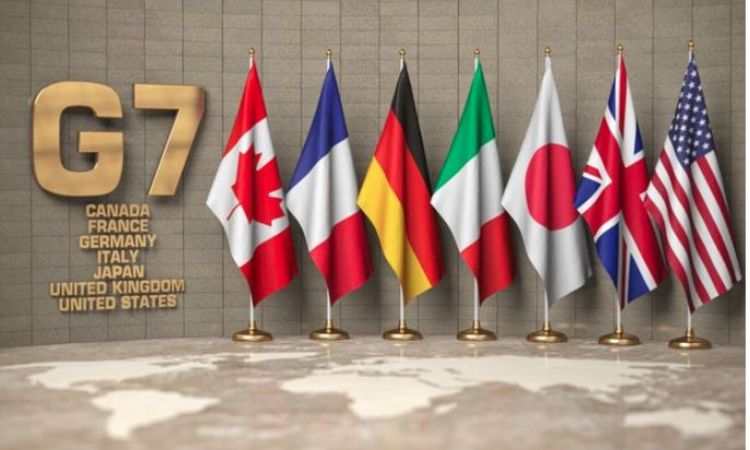Finance ministers from the G7 (Group of Seven) countries met in Japan to discuss various issues facing the global economy, including banking regulation, the impact of Russia’s war in Ukraine, and the prospect of a first-ever U.S. debt default.

British finance minister Jeremy Hunt expressed concern over the potential impact of a standoff between President Joe Biden and the Republican-controlled House of Representatives on the global economy, saying If an agreement could not be reached to raise the debt ceiling for the United States, the country’s gross domestic product would be “absolutely devastating” and “knocked off track.” Biden and Congress were urged by Hunt to work out their differences.
The Impact of Western Sanctions on Russia
The G7 summit officials also talked about how Western sanctions on Russia over its invasion of Ukraine might affect that country. Hunt stated that Western pressure would eventually “start to bite” at a point when economic sanctions against the Russian economy were no longer as effective as military aid to Kiev. Instead, they were producing more of “a slow burn.” The G7 representatives also discussed the need to halt sanctions evasion and leakage.
Non-G7 Members Take Part in Discussions
Hunt highlighted the importance of non-G7 members invited to the meeting by Japan, including India, Indonesia, Brazil, Singapore, and Comoros, taking part in the discussion about Russia. Hunt said that it was very important to have the views of non-G7 members because they represent a significant portion of the global economy.
G7 Rich Countries Want to “De-risk” Relations with China
Hunt noted that one key area of agreement among G7 members was that they want to “de-risk” relations with China, rather than decouple from all trade. Hunt stated that Britain’s “strong view” was the need to avoid an approach that inadvertently returned the world to “protectionism.” He noted that no one is talking about not trading with China, but rather the need to make sure that there are no dependencies that can make countries vulnerable. However, the concrete steps needed to accomplish this are difficult to work out.
A United Response from Advanced Democracies to Economic Coercion
G7 members concurred that any nation using economic coercion should anticipate a coordinated reaction from the world’s advanced democracies. No information was provided on what that would involve, though.
Convincing developing nations to support a coordinated response to Russia’s invasion will require some soul-searching
Hunt expressed dissatisfaction over the G7’s inability to persuade additional developing nations, or the Global South, to back the West’s coordinated response to Russia’s incursion. More introspection was required on that front, he said.
Conclusion
The G7 finance chiefs discussed various issues facing the global economy, including the impact of Russia’s war in Ukraine, the potential impact of a first-ever U.S. debt default, and the need to “de-risk” relations with China. They also talked about the need to stop sanctions evasion or leakage and the importance of a united response from advanced democracies to economic coercion. The G7 officials highlighted the importance of non-G7 members taking part in the discussion about Russia. However, more soul-searching was needed to convince developing countries to support the West’s unified response to Russia’s invasion.















